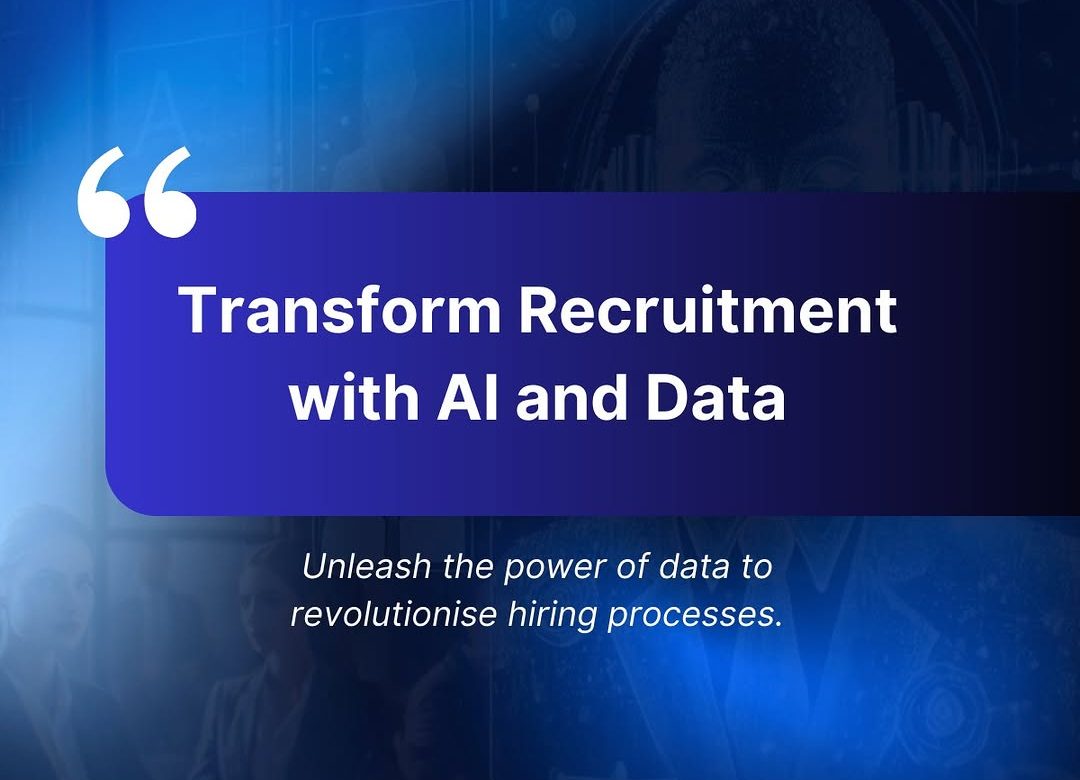Data Utilization in Recruitment Processes: Measurable Success with Artificial Intelligence

Data Utilization in Recruitment Processes: Measurable Success with Artificial Intelligence
The Role of Data in Modern Recruitment
In today’s competitive business world, data-driven decision-making fuels innovation and success. This is especially true in recruitment, where AI-powered insights reshape how companies attract and assess talent. By leveraging Artificial Intelligence (AI), businesses unlock the power of data to enhance hiring outcomes and drive measurable success.
Transforming Recruitment with Data and AI
Data is more than just numbers; it forms the foundation for smarter, more strategic recruitment processes. With AI-driven solutions, businesses extract actionable insights from vast datasets. As a result, hiring becomes faster, fairer, and better aligned with organizational needs.
How Does This Transformation Happen?
1. Data-Driven Applicant Profiling
AI algorithms analyze diverse datasets, from resumes to social media activity. Consequently, they create a holistic profile of candidates, improving hiring accuracy. This profiling helps in:
- Assessing Fit: Matching candidate skills with job requirements.
- Uncovering Potential: Identifying soft skills like adaptability and teamwork.
- Customizing Hiring Approaches: Personalizing communication to engage top talent effectively.
2. Predictive Analytics for Better Hiring Decisions
AI-powered systems use predictive analytics to forecast a candidate’s success in a role. By doing so, these systems:
- Highlight high-performing candidates based on past hiring trends.
- Predict tenure and retention rates.
- Offer data-backed recommendations to streamline decision-making.
3. Unbiased Decision-Making in Recruitment
One major advantage of data-driven recruitment is reducing biases in hiring decisions. AI evaluates candidates objectively by:
- Eliminating Subjective Factors: Removing demographic data from hiring decisions.
- Ensuring Fair Comparisons: Focusing solely on competencies and experience.
- Encouraging Diversity: Reaching untapped talent pools.
4. Enhanced Metrics and Reporting
Recruitment teams access detailed reporting that provides insights into every stage of the hiring process. For instance, they can track:
- Conversion rates from applications to interviews.
- Time-to-hire metrics for process efficiency.
- Quality-of-hire indices for continuous improvement.
From Data to Measurable Success: The Key Benefits
When integrated effectively, data-driven recruitment delivers transformative benefits:
- Efficiency Gains: Automation reduces manual workload, allowing HR teams to focus on strategy.
- Improved Candidate Experience: Personalization ensures candidates feel valued throughout the process.
- Strategic Insights: Detailed reporting fosters continuous learning and optimization.
Challenges: Addressing Risks and Ethical Concerns
While data-driven hiring has clear benefits, it also introduces challenges:
- Over-Reliance on Algorithms: Human oversight remains essential to capture nuances AI might miss.
- Data Privacy and Security: Protecting candidate information is crucial for trust and compliance.
- Bias in Data Sources: Ensuring that past biases in datasets do not affect future decisions requires constant monitoring.
A Balanced Approach to Success
The future of recruitment relies on balancing AI-driven precision with human judgment. By integrating technology with human expertise, companies achieve a new standard of measurable success.
Recruitment professionals are entering a new era. With the right blend of AI, data, and human insight, organizations can turn data into their most valuable hiring asset.
Ready to transform your hiring process with AI-driven insights? Try Vinter today and experience the future of recruitment!

